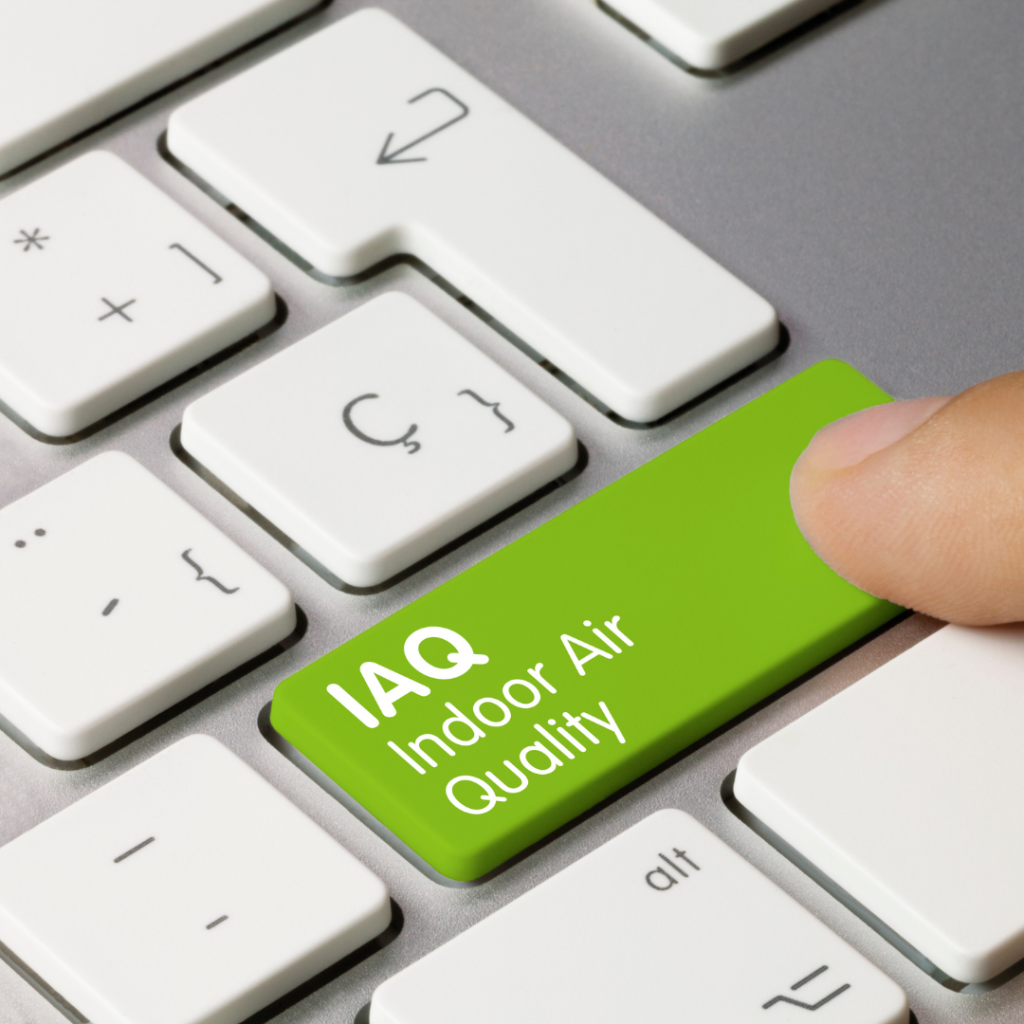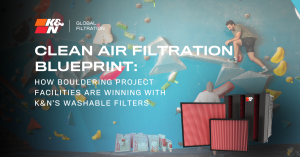Breathing: it’s the most natural process, a rhythm we partake in nearly 20,000 times a day, often without a second thought. Yet, the quality of air we inhale is essential – not just to individual health – but to the operational efficiency and safety in spaces where humans work. Indoor air quality (IAQ) has emerged as a silent yet formidable factor influencing facility management, from cognitive function to complex machinery performance.
Importance of Indoor Air Quality
At its core, IAQ encapsulates the condition of air within and around buildings, directly impacting the health, comfort, and productivity of its occupants.
The Environmental Protection Agency (EPA) underscores IAQ’s importance, noting that Americans, on average, spend approximately 90% of their time indoors, where the concentrations of some pollutants are often 2 to 5 times higher than typical outdoor concentrations.
This statistic alone illuminates the imperative of pristine indoor air, a necessity further magnified in places such as data centers, hospitals, and educational institutions.
Data centers, for instance, confront the dual threat of particulate and gaseous contamination, making the goal of improving indoor air quality in a data center a top priority. These pollutants not only compromise the health of those working within but also threaten the very essence of these facilities: the servers and hardware they house. Poor IAQ can lead to overheating, static buildup, and dust accumulation, jeopardizing critical IT infrastructure and leading to costly downtimes. A report by the Ponemon Institute highlights the staggering cost of data center outages, averaging $9,000 per minute, with environmental factors like poor indoor air quality being significant contributors.

Hospitals, centers of health and recovery, encounter their own set of IAQ challenges, magnified by the intrinsic need for sterile environments. Here, the stakes are heightened, as poor IAQ can significantly impact patient recovery and infection control. The World Health Organization (WHO) emphasizes the heightened risk of healthcare-associated infections (HAIs) in environments with compromised air quality, affecting 1 in 10 patients during their stay. The implications extend beyond patient well-being, straining healthcare systems and elevating operational costs.
The story is similar in the context of educational institutions, where the dense populations create a complex set of air quality challenges. The American Lung Association points to IAQ as a crucial factor affecting not only student health but also their academic performance. Studies demonstrate a direct correlation between improved IAQ and enhanced cognitive functions, including memory, attention, and speed of processing, underscoring the importance of clean air in fostering an optimal learning environment.

Investment in high-quality air filtration systems not only mitigates these risks but also champions sustainability and energy efficiency. By reducing the burden on HVAC systems and extending the lifespan of equipment, our industrial air filtration solutions exemplify how cutting-edge technology can harmonize health, efficiency, and environmental stewardship.
Breathe Easier with K&N
At K&N Global Filtration, we’re dedicated to improving indoor air quality through innovative air filter services and technology that sets a benchmark. Our solutions are an investment in the future of the planet and the health of its inhabitants. K&N’s approach to air filtration is about meeting today’s needs and anticipating tomorrow’s challenges to ensure that facilities can breathe easier with K&N’s industrial air filters. The Original Red Washable, Reusable Filter ™ offers:
- Enhanced Efficiency: With a focus on high particulate capture rates, K&N filters are capable of removing smaller particles more effectively than standard filters, which is crucial for protecting sensitive equipment in data centers and ensuring sterile air in hospitals.
- Longevity and Sustainability: K&N’s commitment to sustainability is evident in its washable and reusable filter designs, reducing waste and offering a cost-effective alternative to disposable filters. This feature not only lowers operational costs but also allows you to clean your filters as often as your facility needs.
- Cost-effectiveness: The long-term savings in maintenance, energy efficiency, and equipment protection make K&N air filters a financially savvy choice for facilities prioritizing IAQ.
Embracing K&N industrial filters marks a significant step toward enhancing both the indoor air quality and operational efficiency of your facility. Select from K&N’s extensive range of filters, including MERV 8 filters available now, with MERV 11 and 13 options coming soon. Options to start your facility’s transition from traditional disposable filters to K&N’s washable and reusable alternatives.
Looking ahead, K&N is committed to driving advancements in air filtration performance, reflecting a broader vision for the future of indoor air quality management, and aligning with global trends toward more sustainable, efficient, and effective solutions. By developing long-lasting, washable, and reusable filters, the K&N team is significantly improving indoor air quality while also reducing waste and supporting environmental initiatives.
Does your single-use filter do that? To showcase our confidence in the effectiveness of K&N air filters, we’re willing to jump-start your transition by offering up to 50 free filters for a pilot program in your facility. This initiative allows you to witness firsthand the impact K&N filters have on your air quality and overall facility performance. Find out how to start your pilot at www.knglobalfiltration.com/pilot.




